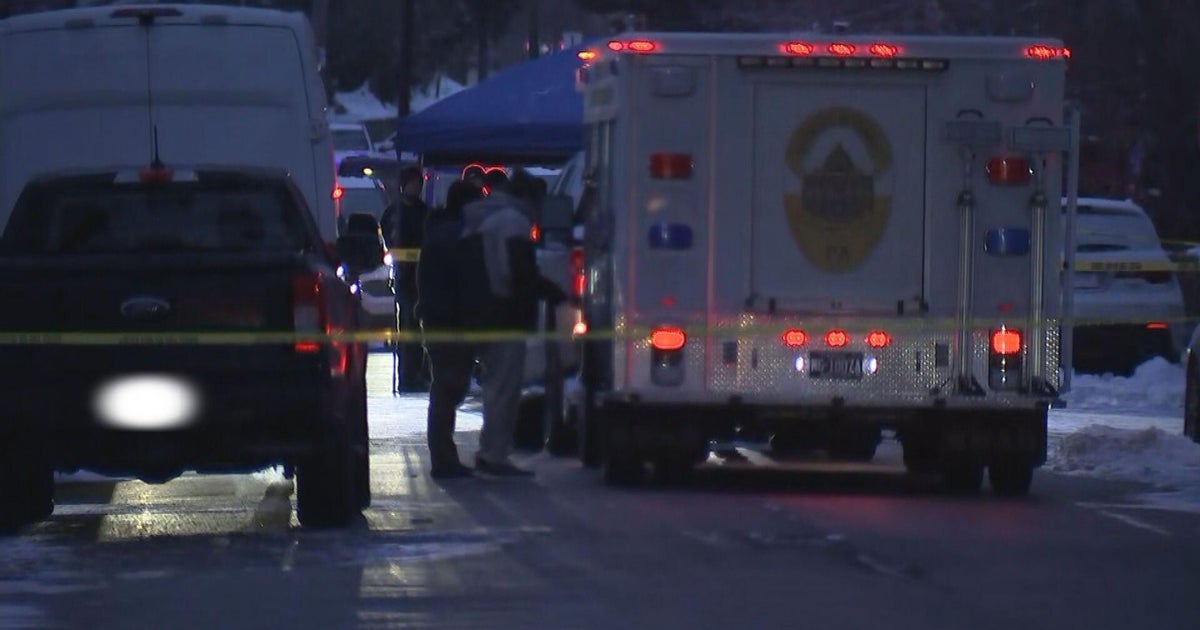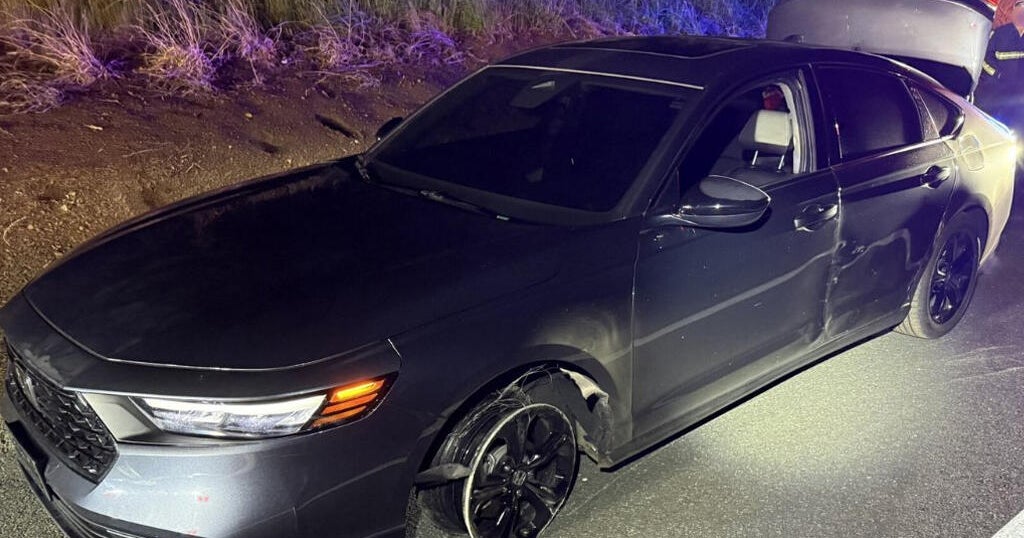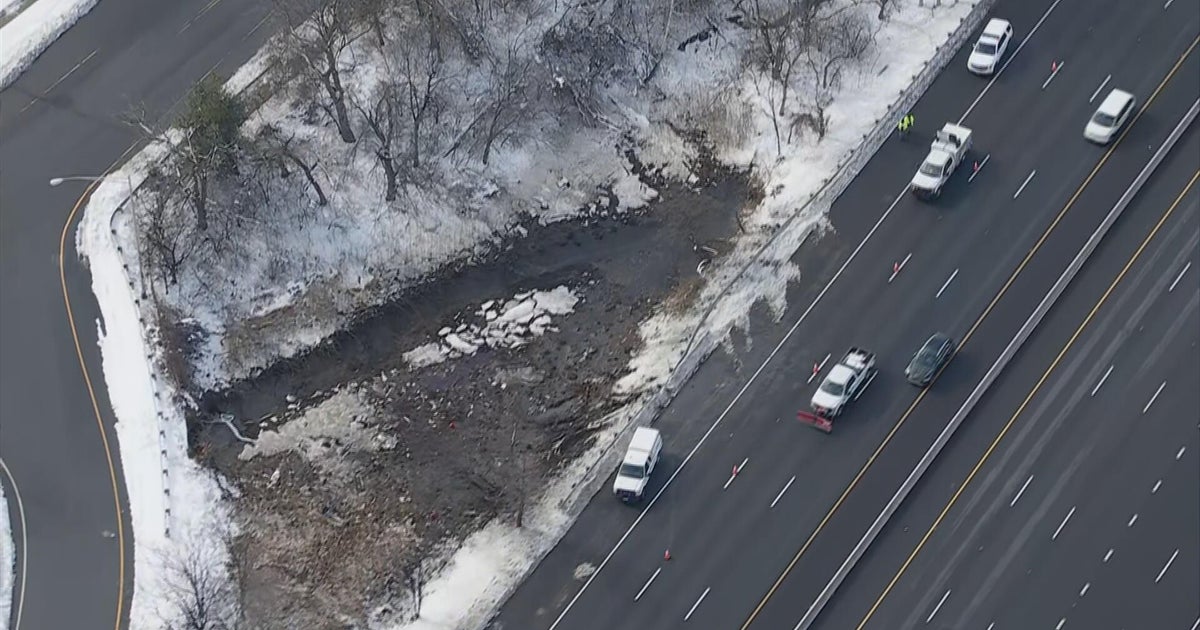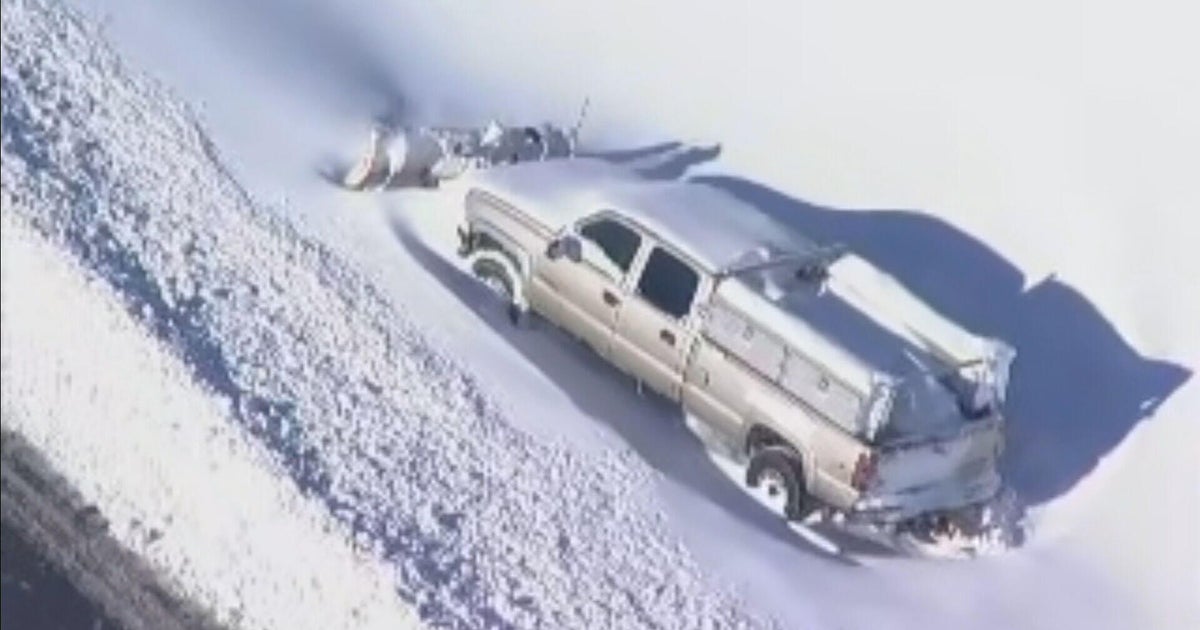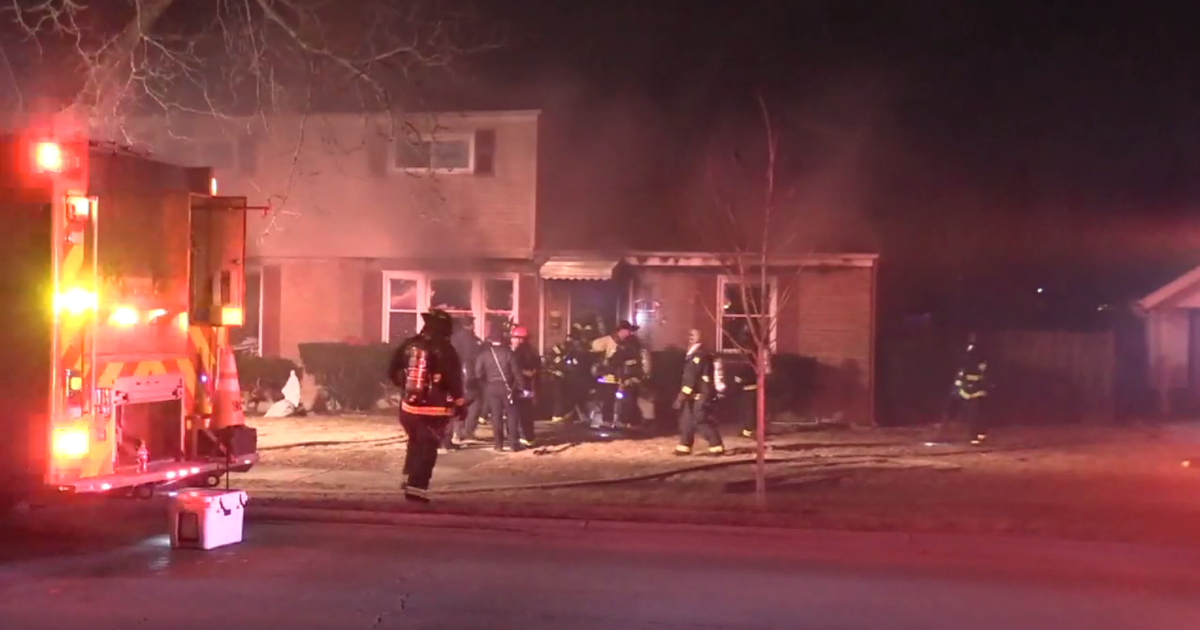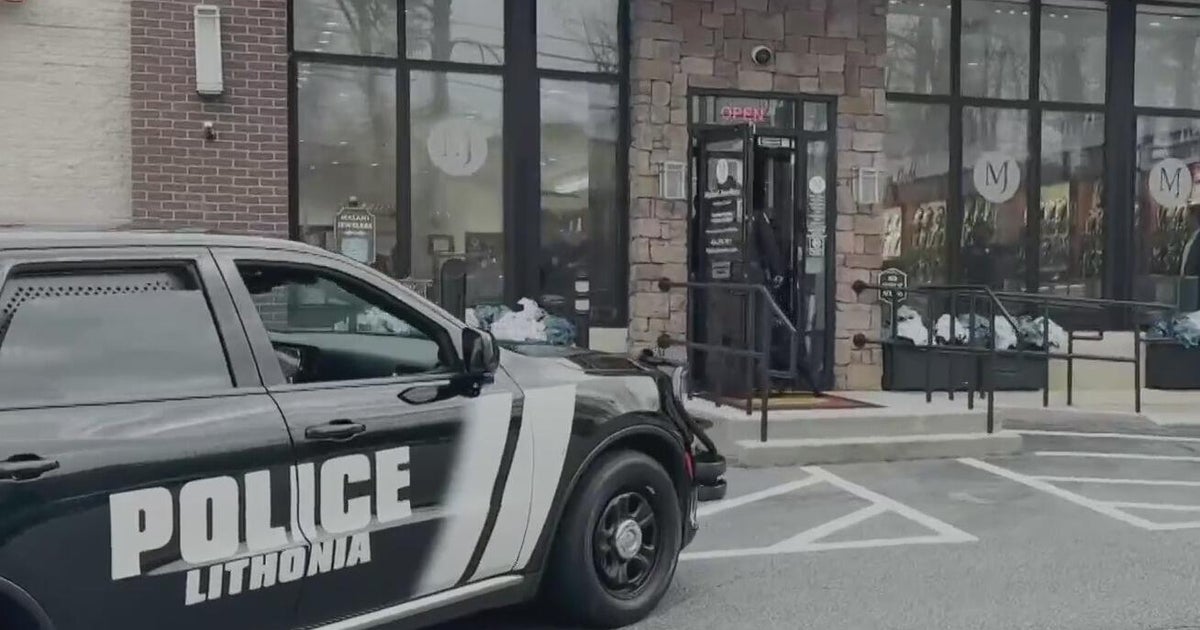Florida fire marshal calls electric vehicles "ticking time bombs" amid Hurricane Milton flooding
Storm surges from Hurricane Milton could turn electric vehicles and other products containing lithium-ion batteries into "ticking time bombs," Florida's fire marshal warned.
Residents and first responders are being cautioned about "an alarming fire hazard with lithium-ion batteries, EVs, as well as hybrid and fuel cell vehicles in preparation of Hurricane Milton," according to a Monday statement from Florida fire marshal Jimmy Patronis, who also serves as the state's chief financial officer.
Hurricane Milton made landfall Wednesday night as a "dangerous Category 3" storm near Siesta Key, on Florida's central west coast, the National Hurricane Center said. Siesta Key is a barrier island located just south of Sarasota. Milton had sustained winds of 120 mph at landfall, but its strength diminished to Category 1 as it moved inland across the state.
More than 3.2 million customers were without power in Florida early Thursday.
The fire marshal's warning comes after prior incidents of floodwaters caused electric vehicles to burst into flames. Florida officials have confirmed 48 lithium-ion battery fires related to storm surge from Hurricane Helene, with 11 involving EVs.
Further, battery fires can occur hours and even weeks after electric cars are submerged in salt water, federal officials warn.
"Anything with those lithium-ion batteries needs to be moved out of the surge zones where it could be exposed to saltwater," Cathie Perkins, Pinellas County's emergency management director, said at a Wednesday morning briefing.
"We've seen it — they've exploded; they've caused fires," Perkins said. "If it's inside of your home or underneath a condo, we do not need to have building fires in the middle of this because nobody's going to be able to come out and help you."
Hurricane Ian in 2022 caused various degrees of damage to between 3,000 and 5,000 EVs in Florida, with 600 vehicles deemed a total loss, and 36 catching on fire, according to the National Highway Traffic Safety Administration.
"In several instances, the fire erupted while the impacted EVs were being towed on their flatbed trailers," the agency stated in a 2022 report.
An NHTSA 2021 report noted, "A thermal incident following vehicle immersion is significant and can actually create a dangerous situation not only for vehicle operators, but also for the first and secondary responders attending to the scene after the flood waters have receded."
Beyond cars, other consumer products that can contain lithium-ion batteries include scooters, hoverboards, golf cars and toys.
Warning from Geico
Citing the statement from Patronis, Geico emailed its policyholders on Wednesday to warn them about the increased risk of EV fires after water damage. The car insurer recommended looking for protected parking areas.
Owners should relocate their EVs to higher ground where their vehicles will be at less risk of flooding, Patronis said. After the storm, EVs flooded by saltwater should be moved away from residences to safe locations, so "you can worry about fixing your home, instead of rebuilding it due to fire," Patronis stated.
And firefighters in Palm Harbor, Florida, last year warned Tesla owners their rechargeable car batteries could combust if exposed to saltwater after two of the electric vehicles caught fire following submersion.
Lithium-ion battery packs, which consist of a group of cells inside a compartment, contain a flammable liquid electrolyte. EV and plug-in hybrid vehicles have about 1,000 times more cells than an e-bike, according to a report by the CBS News Innovation Lab. Higher energy batteries with more cells are at greater risk of failure.
Vehicles or other devices that are at risk for flooding should be unplugged and moved to an open space, according to guidance from both Tesla and Patronis.
